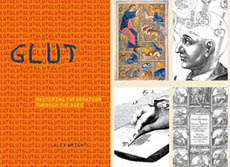Folksonomies and language
January 18, 2005
Languages are much on my mind these days in light of some work I've been doing with the Rosetta Project. While I won't pretend to be any kind of linguist, it does seem that open Web-based systems are contributing to an ongoing commingling of languages: a phenomenon in ample evidence across burgeoning folksonomies like Flickr. While this blending of tongues invites all kinds of Global Village fantasies, I think it's also worth considering the philosophical downsides.
In The Name of the Rose, Umberto Eco creates the cautionary figure of Salvatore, a fallen monk who "spoke all languages and no languages." When the young novice Adso encounters Salvatore's strange speech - a chaotic glom of Latin, Greek, Italian, French, English and who knows what else - he tries to make sense of the monk's strange tongue:
> Peter van Dijk, Emergent i18n effects in folksonomies (via atomiq)
tags: folksonomy, language, umberto_eco
File under: Semantic Web
_____________________« Travellers and Magicians | Sandy Berman, Freetagging Old School »
GLUT:
Mastering Information Through the Ages
New Paperback Edition
“A penetrating and highly entertaining meditation on the information age and its historical roots.”
—Los Angeles Times
